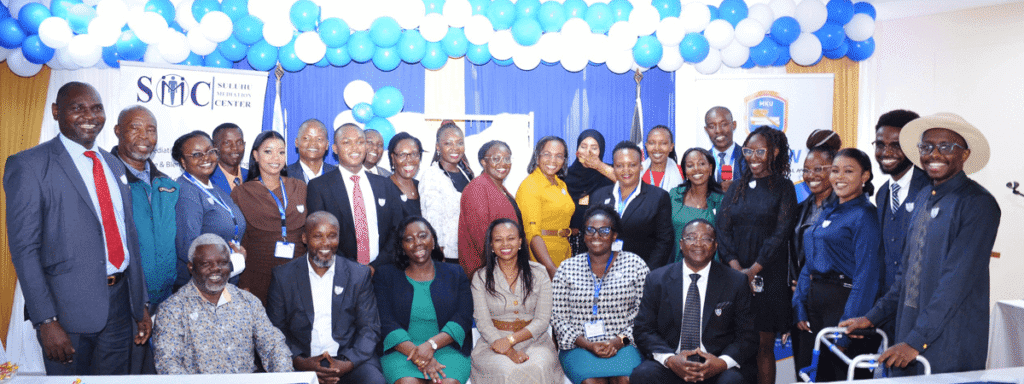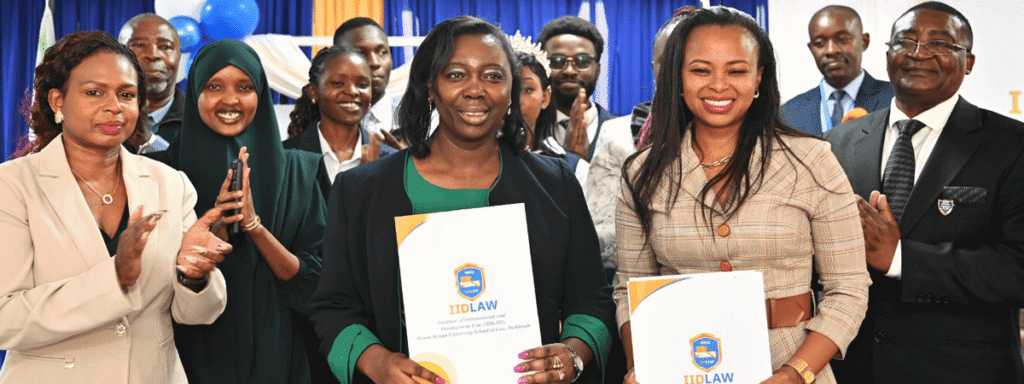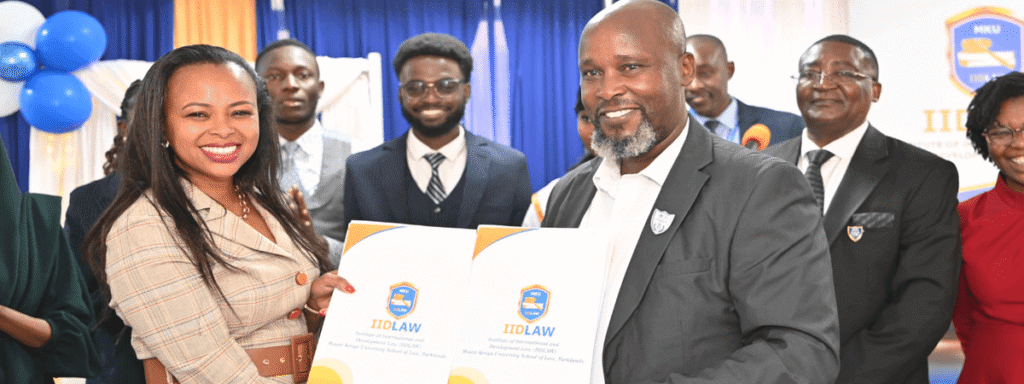
Stakeholders have raised concerns over shortage of mediators in the country amid a growing demand for mediation services.
The country, with a population of over 50 million, has about 2000 registered mediators despite their services being highly sought especially after the Judiciary established the Court-Annexed Mediation program (CAM) to reduce backlog in courts and promote out-of-court settlements.
Players in the sector maintain that mediation services are imperative in clearing matters that have dragged for years in courts as well as enhancing disputes settlement. They noted that there’s dire need to adopt deliberate measures to bridge the deficit of mediators in the country.

The stakeholders spoke at Mount Kenya University (MKU) during the graduation of some 27 Certified Professional Mediators (CPM) who have undergone training through the University’s Institute of International and Development Law (IIDLAW) in partnership with Suluhu Mediation Center.
Speakers at the event noted that court referrals to mediation has increased drastically and hence the need for more qualified mediators adding that case conclusions have significantly risen indicating high success rate.
Judy Ngayu, the Director MKU Institute of International and Development Law (IIDLAW) noted that training of more mediators will help bridge the gap and ensure that there enough qualified mediators to handle matters within the republic.
“We have a shortage of mediators as a country and the fact that there so many matters dragging in courts and many files in the Judiciary being handled by mediators is a sign that there’s more that need to be done. This is the reason why MKU through IIDLAW embarked on this program of training mediators,” Ms Ngayu said.
The Director noted the mediation training program at IIDLAW is set to be taken a notch higher following partnership with Suluhu Mediation Center to offer various programmes, from professional certification courses to specific workshops on topics like commercial or domestic violence mediation.
Her sentiments were echoed by Ferd Moyomba, the Training Coordinator at IIDLAW (Click here to learn more about IIDLAW) who quipped that the training options include in-person, virtual, and blended formats, and some programs lead to accreditation recognized by the Judiciary of Kenya.

Senior Resident Magistrate Adelaide Sisenda, who graduated as a CPM after undergoing the training. She noted that mediation practice should be upheld to assist the Judiciary to solve disputes spanning from corporate disputes, succession and inheritance, marital, family and inheritance disputes, commercial and trade disputes among others.
“Our courts are currently overwhelmed with cases that can be settled through Alternative Dispute Resolution (ADR) processes and especially mediation. This is the only process to amicably solve disputes while ensuring that the relationship between the parties involved is not harmed in any way,” she said.
Hon Sisenda reiterated that there’s dire need to enhance training of more mediators as well as creating a unified legal framework, such as a national Mediation Act, to facilitate structured growth and standardization of the mediation profession.
She at the same time emphasized the importance of alternative justice system (AJS) or alternative dispute resolution (ADR) which she said goes a long way to save time and expenses incurred through ordinary litigation.
“Many Kenyans are still resorting to litigation as their first option and this indicates a persistent need for greater public sensitization about the benefits of mediation,” she noted.
Suluhu Mediation Center Director Maina Migwi noted that to increase the number of mediators in the country, comprehensive strategies are needed to build a robust mediation ecosystem. He said that the strategies include strengthening the institutional framework, increasing public awareness of mediation’s benefits, and establishing training and financial support systems.
We must establish common training standards and work with professional and academic institutions to develop and implement standardized training and accreditation programs. This is why we are working closely with MKU through IIDLAW to advance this training.

The Chief Guest at the event Mrs Chrsitine Kungu, the Chairperson Federation of Women Lawyers in Kenya (FIDA-Kenya) noted that adequacy of certified and qualified mediators will enhance justice for women and girls across the country.
“We have seen mediation to be a comparatively efficient mechanism for parties who wish to amicably resolve their disputes while enhancing unity and protecting the mutual relationship they have for each other,” she noted.
She however called on mediators and especially those joining the profession to observe and adhere to the Mediators Code of Conduct as well as uphold high integrity standards in their line of work.











